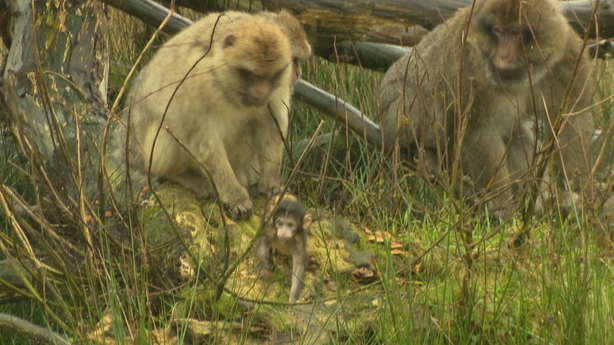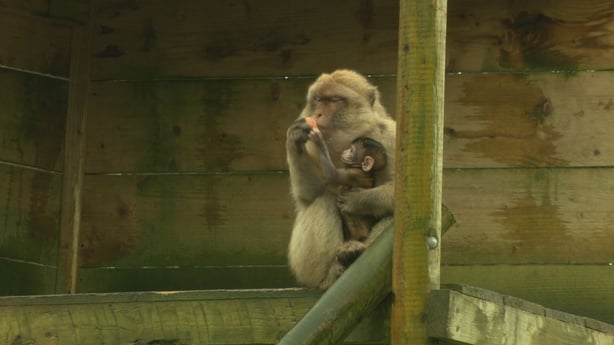The birth of a baby barbary macaque monkey at the Wild Ireland sanctuary in north Donegal has been described as hugely significant internationally.
Barbary macaques are native to the Atlas Mountains in north Africa and the Rock of Gibraltar but they are a critically endangered species.
The baby macaque was born to mother Sandy and father Azen at the sanctuary near Burnfoot, but Killian McLaughlin, owner of the sanctuary, said they do not know yet if it is a girl or a boy because the mother is being really protective and keeping the baby very close to her.
The family came from France two years ago along with the new baby's older sister Ellie and grandmother Judith.
The surprise birth was met with delight at Wild Ireland where there is a huge commitment to animals threatened with extinction.
Barbary macaques are under threat from humans and from other animal predators including big birds of prey, according to Mr McLaughlin.

Babies are often poached for the illegal pet trade or used as photographers' props on beaches in places like Spain and Portugal where tourists have their pictures taken with the baby monkey on their shoulder, he said.
Mr McLaughlin said: "Our mission is to provide a safe haven for these incredible animals, ensuring their well-being and contributing to the global fight against extinction."
Conservation and rehabilitation are key to the work at the sanctuary which is open to the public.
At Wild Ireland, many of the animals, including brown bears, have been rescued from dreadful circumstances in different parts of the world.
They have been rescued and brought to Donegal from places where they have been abused and exploited including laboratories, circuses, roadside zoos and the illegal pet trade.

The barbary macaques live on an island in the sanctuary where they can forage, wander around the trees and go into the water.
Mr McLaughlin said it would be wonderful to have more births in the family.
Breeding of species like this in captivity is very important for their survival, he said, because if the worst happens and extinction is on the cards in the wild then this safety net population can be introduced and help the survival of the species.






